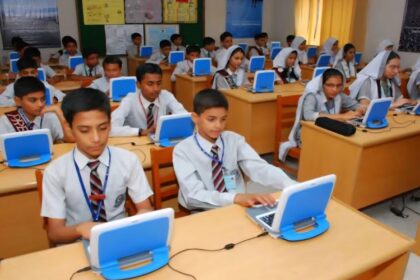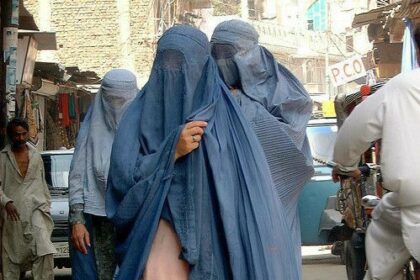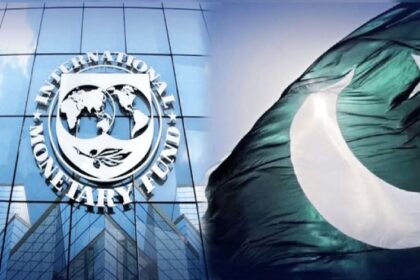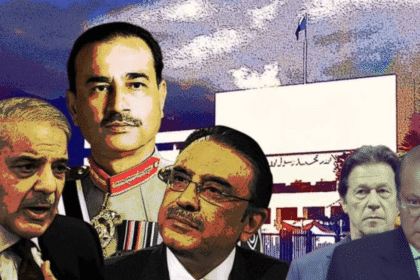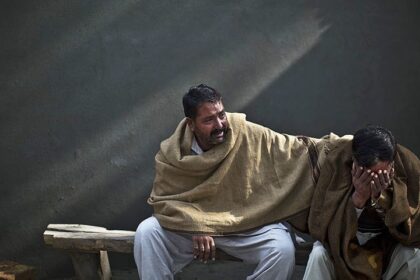Pakistan has established itself as a mid-level player in the shifting power dynamics of Asia, as it has secured sixteenth position in the 2024 Asia Power Index published by the Lowy Institute – an independent think tank founded in 2003 to conduct original, policy-relevant research regarding international political, strategic and economic issues.
The Asia Power Index is an annual assessment of power across Asia, and uses various metrics such as diplomatic influence, economic strength, and military capability to finalize the report on each country. This year, Pakistan’s ranking highlighted both its achievements and the struggles it faces in expanding its regional influence.
The institute’s findings indicate that Pakistan has shown considerable improvements in specific areas, but its overall influence still not on a par with that of other regional powers. The detailed report provides an analysis of Pakistan’s strengths, and focuses specially on its demographic potential and defense relationships with other countries.
At the same time, it highlights significant challenges in its economy and military. According to the report, Pakistan saw the largest improvement in future resources (+2.8) but experienced the biggest drop in military capability (−1.4). Other areas of growth included defense networks (+2.0), resilience (+1.8), diplomatic influence (+1.1), and economic capability (+1.0). while cultural influence and economic relationships remained unchanged this year.
FUTURE RESOURCES
According to the report, one of Pakistan’s biggest strengths is its future resources, where it has been ranked fifth among 27 countries. This shows Pakistan’s massive demographic potential. More than two-thirds of Pakistan’s 240 million population consist of people under the age of 30 years, which means that the country has a large pool of youth who are ready to enter the workforce. Experts believe this could drive the nation’s economic growth over the coming decades if managed properly.
However, some believe that having a large young population is a double-edged sword. On one side, it offers the potential for growth, while on the other hand, it requires substantial investment in education, healthcare, and job creation. Without right infrastructure and support frameworks for this young workforce, Pakistan could struggle to convert this demographic advantage into tangible power.
DIPLOMATIC INFLUENCE
According to the index, Pakistan has shown some noteworthy improvements on the diplomatic front. The role it has played in facilitating discussions among various powers, particularly concerning Afghanistan, has strengthened its global position. Pakistan’s engagement in forums like the United Nations, along with its contributions to peacekeeping missions, highlights a deliberate push to enhance its diplomatic presence.
Despite these advancements, Pakistan’s diplomatic influence still lags behind that of its regional competitors. Although it has established connections with countries such as China and those in the Middle East, its relationships with other significant countries, like the United States of America and India, remain complex. This has limited Pakistan’s ability to fully capitalize on its diplomatic potential.
DEFENSE NETWORKS
Pakistan has shown a significant improvement in developing its defense networks, with partnerships playing a vital role in this progress. The country’s close relationship with China, especially through the China-Pakistan Economic Corridor (CPEC), has helped strengthen its position in the region. In addition to that, Pakistan’s collaboration with other regional powers, such as Turkey, has further strengthened its defense stance.
Despite these strong alliances, Pakistan’s military capability has been ranked lower, sitting at 15th place. This ranking highlights a disparity between the country’s defense partnerships and its ability to project military power on its own. Although Pakistan maintains one of the largest militaries in the world, its conventional forces trail behind those of neighboring countries.
Pakistan has been investing significantly in defense, but much of its military equipment remains outdated when compared to contemporary military standards. Observers believe that Pakistan’s conventional military forces require modernization to keep pace with evolving threats. The focus on internal security has limited the development of advanced military capabilities, which might affect Pakistan’s long-term capacity to exert influence through military means.
ACHILLES’ HEEL
Pakistan’s performance in the Asia Power Index takes a hit when it comes to economic relationships, landing it in 20th place. While there are hints of resilience, the country is still having a tough time expanding its economic influence. Its heavy reliance on a narrow range of exports has restricted its ability to connect with global markets.
In addition to that, foreign direct investment (FDI) in Pakistan is still quite limited. Although the China-Pakistan Economic Corridor has brought in some Chinese investment, it hasn’t been enough to kick-start the economic growth that the country needs. The burden of debt, along with ongoing fiscal deficits and reliance on foreign loans, continues to hold back its economic capabilities.
Experts believe that Pakistan’s growth potential will remain limited in the absence of any major reforms in governance, infrastructure, and the energy sector. Although the country has shown some resilience against global economic challenges, persistent issues like inflation and corruption are significant hurdles to achieving long-term success.
SOFT POWER
Soft power is another area where Pakistan struggles, ranking 20th in the index. The country’s image around the world has been affected by issues like internal security, ‘political’ unrest, and slow progress in areas like education and health. These factors make it hard for Pakistan to present a positive image to other countries.
Even though, Pakistan has a rich culture, a growing entertainment industry, and success in sports like cricket, it hasn’t been able to use these strengths to improve its soft power internationally. Tensions with India and ‘complicated’ relationships with Western countries have also limited its influence. Although tourism is starting to grow with more foreign visitors, it still lags behind other regional destinations. To truly enhance its global image, Pakistan will need to focus on more than just advertising, and would have to work on improving stability and governance.
RESILIENCE
One of the more positive aspects of the report is Pakistan’s resilience to external shocks. Throughout its history, the country has gone through many tough times, like political issues and natural disasters, but it has still managed to keep some level of stability within. The military has played a big part in keeping things in order, and the strength of the people has helped Pakistan get through tough times in a region that often faces chaos.
Even though being resilient is a positive trait, it also shows the difficulties that Pakistan has to deal with. The country’s skill in handling these crises is really important, but it highlights the need for solutions that last a long time instead of just quick fixes. Experts caution that depending only on resilience would not be enough to ensure that Pakistan becomes a strong power in the region.







